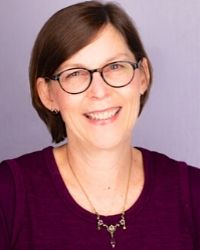National Science Foundation awards $1.4 million to college for TeachDETROIT
The National Science Foundation provided funding in the amount of $1,448,963 to the College of Education in support of TeachDETROIT, a teaching residency aimed at increasing the number of elementary and middle school math teachers in Detroit.
The U.S. lags far behind other countries in mathematics achievement in international comparisons, and nowhere is the situation worse than in Detroit. Detroit schoolchildren's scores on the National Assessment of Educational Progress are repeatedly the lowest in the country by a wide margin.

"Proficiency in mathematics is essential for entry to college, access to employment, economic well-being and participation in a democratic society," said Jennifer Lewis, Ph.D., associate professor of mathematics education, director of TeachDETROIT and principal investigator. "TeachDETROIT seeks to improve children's mathematical abilities by recruiting, training and supporting the next generation to use their passion for STEM to make a difference in Detroit schools."
TeachDETROIT teachers are trained in culturally relevant pedagogy and focus on working with children and their families with a "strengths and assets" lens.
The Noyce Mathematics Cohort of TeachDETROIT recruits and trains STEM majors at Wayne State University, in collaboration with its community college partner, Henry Ford College. Candidates teach in Detroit elementary and middle schools as part of an urban teacher residency program and can earn the additional designation of elementary mathematics specialists with further coursework.
TeachDETROIT candidates learn about the history of Detroit, explore its neighborhoods, and hear from elders in the community. Candidates are placed in classrooms with experienced Detroit teachers, who are partners in the program.
To learn more about TeachDETROIT, visit coe.wayne.edu/teach-detroit.
This material is based upon work supported by the National Science Foundation under Grant No. DUE-1540819.
Any opinions, findings and conclusions or recommendations expressed in this material are those of the author(s) and do not necessarily reflect the views of the National Science Foundation.